After the short visit to the Black Sea coast, we turned to the easternmost border crossing, near Malko Tarnovo. That meant we had to cross Stranja, a hilly and sparsely populated region of southeastern Bulgaria. The road led across woods, which often provided pleasant cover from the sun. Roadside springs also gave opportunities to rehydrate and even to have a bath after the last night spent at Tsarevo beach.
Having already left the main attractions of Bulgaria behind, we were eager to see the other side of the border as soon as possible. This impatience made us feel like the countless hills were never going to finish. Quite tired, making stupid jokes about the inhabitants of both sides of the border, we finally reached the frontier post, located in the middle of a huge forest. It was late afternoon already, which meant we would look for a campsite quite soon.
After a narrow and quite old road on the Bulgarian side, we were shocked by the change that happened behind the border. The road was not only covered by brand new flat asphalt, but also had a hard shoulder of the width of a regular driving lane. That means two cyclists can go there side by side, yet not disturbing the drivers. In these ideal conditions we quickly left the forests, to enter steppe, which dominates the Turkish part of Thracia.
On this side of the border, the land looked as empty as on the Bulgarian side, so we decided to sleep under the stars again. This night we enjoyed unusual scenery. Located just under the top of a hill, illuminated by the full moon, we could clearly see the great panorama of vast, empty space of that land. Under the silver light, with no single cloud on in the sky, only the occasional cars passing along the road reminded us that we were on Earth, not on some lone, distant planet.
Since the following morning, we began to meet Turkish people and to visit their towns, which were getting bigger and appeared more often, while we approached Bosphorus. Stopping at cities, we enjoyed delicious kebabs and chocolate-less sweets, so different to the food we had eaten so far. The hottest parts of the days we were spending in parks, drinking tea among the locals. That let us acquire some basic Turkish words and reassured again that English would not be very useful in that country. Even among the youngsters, the knowledge of foreign languages is surprisingly low, contrasting sharply with the high level of development their country presents. Indeed, the infrastructure here looks better than in many regions of eastern European Union, and the prices seem expensive for us, being the highest since I had left Finland. That paradox was perfectly pictured during one of our countless visits to gas stations. The clerk working there offered tea and wanted to talk, but knew only a handful of English words. Not discouraged by the language barrier, he led me to the counter, where he typed his questions into Google Translate and asked me to answer him the same way.
Looking for flat areas after recent hills and mountains, we had picked the coastal road, going along the shore of Marmara Sea. Although there was a parallel highway nearby, the traffic increased with every kilometer eastwards, finally reaching unbearable levels. I definitely discourage everyone to follow that way, as there are parts where one has to mix together with the cars. Large parts of the road not only lack any shoulder, but are also fenced by a steel barrier just next to the right edge. Strong side wind together with speeding and often overloaded trucks, make this just a lottery of luck or lack of it. However, beside the awful first 20km after the road arrives to the coast, the conditions were quite comfortable. Large parts of the road were under reconstruction, which meant that we could cycle on the fresh asphalt of the closed lane. Once we found a gas station, cut off from the traffic due to the roadworks, and offering a nice, green lawn. Asked for permission to camp, the staff agreed instantly, happy to see anything happening in their business, lacking customers during recent days. Having just installed the tent, we were invited to a huge dinner and a difficult talk in Russian with the only member of the staff, who had mastered foreign languages.
Our aim during these days was clear: Istanbul — the huge city spanning two continents, the crossroads of the world. We wanted to cycle into the center of this 15-million monster, and it proved to be hard task. The traffic became denser and denser as we gone through the outskirts of the city, finally coming to a stall when huge roadworks appeared on the horizon. Fortunately, a bike, even when laden with panniers, is much smaller than a car, and we managed to work our way through the maze of bigger vehicles. We had been expecting to reach the center about 8PM, but finally we managed to enter the old city district of Sultanahmet three hours later. Still early enough to get on a ferry and cross to the Asian side.
There we cycled to Bostancı district, to the house of Kerem, who had been waiting for us patiently until the late night hours. I had contacted him on Warm Showers few days before, just to receive his immediate and positive reply. Charmed by his hospitality and incredible trust to strangers, we used his house to explore the city and to prepare important things for the nearest future.
Istanbul is a city that leaves no one untouched. It's enormous size, geographical location, old architecture, multiculturalism, huge maritime traffic, or the dynamism of modern construction works — at least one of these features will make impression on everybody. Unfortunately, many people already know that. The previous time I had visited it in winter, and I had never expected the crowds we encountered in the old, historical part. Huge swarms of tourists, carried there and away in countless buses, were filling all the streets and interiors of Hagia Sophia, the Blue Mosque and other top attractions. Fortunately, Istanbul gives much more to explore, and we also found some interesting places to see, where almost no tourist managed to reach.
In places like this I dream sometimes, how it would be to move back several hundreds of years. How Istanbul, or Constantinople, looked when every visitor had to come here on his own feet, or at least on a horseback? Due to it's location on the only reasonable overland route connecting Europe with Middle East and Asia, Istanbul has been known as the crossroads of the world. Now, when the oil made travels cheap end easy, it lost that prominent position, but still acts as a bridge between different worlds, both geographical and cultural.
Here I am entering the land of Islam — the moment, which I had been eagerly awaiting since the beginning of the journey. My experience with Muslim people has been very positive so far, and I have always wanted to explore the Middle East more than just Iran, where I lived for few months. Although still worried about the situation in Syria, I expect to spend a good time until I reach the eastern border of Sudan, where the religious and cultural surrounding would again undergo a drastic change.
Here I'm also back to traveling alone. Kasia has just flown back home, which makes me think again about finding other bike tourers going the same direction. Once again, I'm inviting everyone willing to join me. You may check the estimated timetable for the following months.

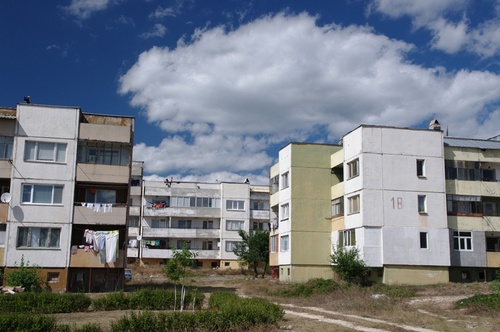
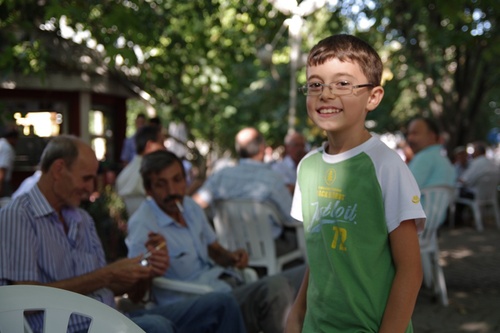
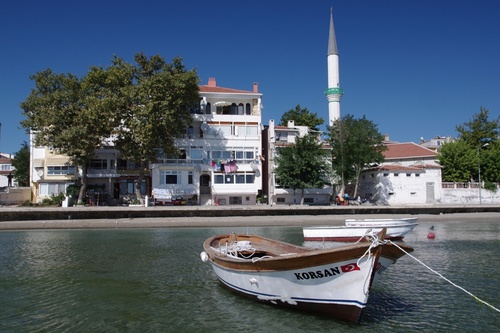
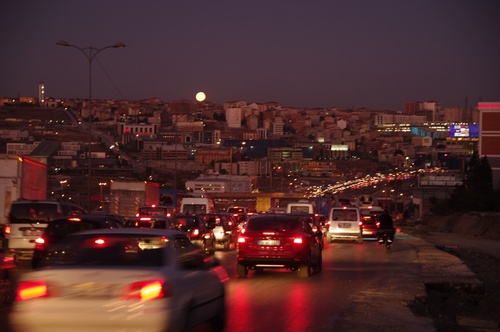
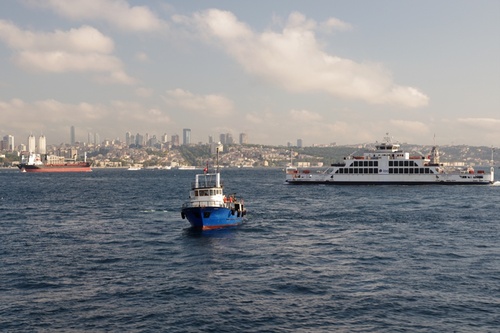
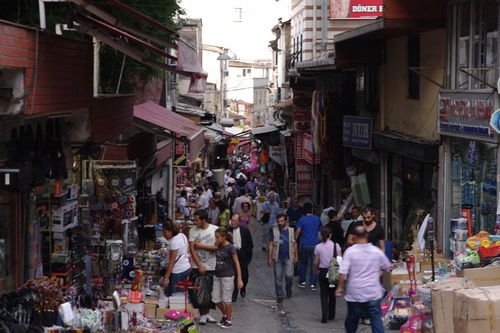
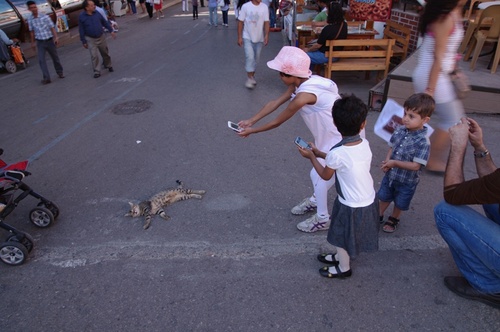
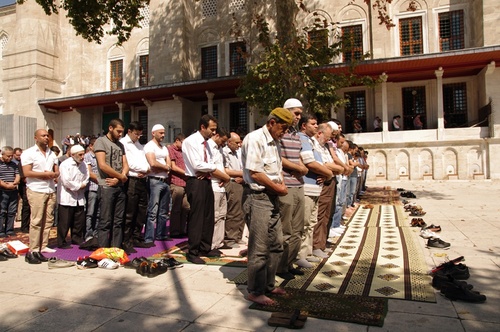
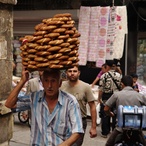
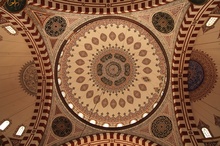
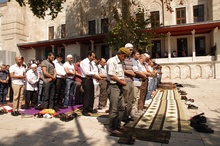
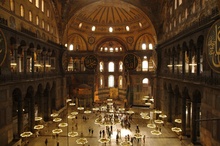
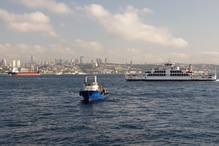
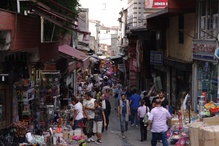
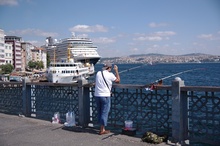
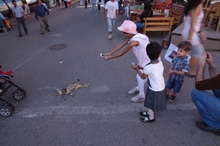

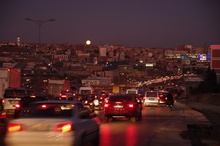
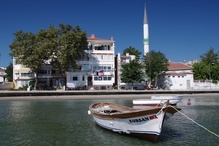
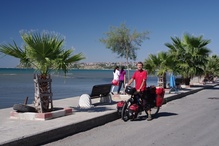
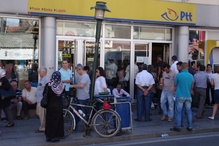
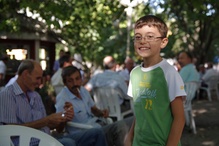
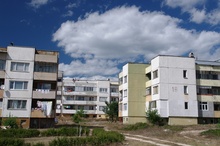
Comments:
hose morales
Jeden z ciekawszych wpisów jakie do tej pory u Ciebie czytałem:)
Albo mi się wydaję,albo szybko pniesz się w górę jeśli chodzi o zdjęcia i ich jakość. Nieźle!
mama
fan